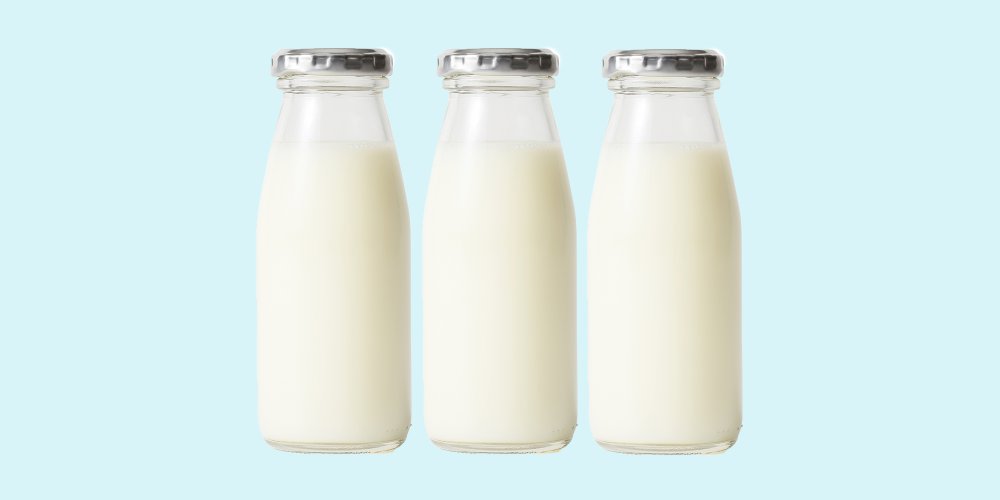"Dairy products are our friends for life!"
We have all heard at least once this flagship advertising jingle of the 90s. But is milk really our ally, or should we be wary and consume it in moderation?
Milk, a good source of calcium and protein
Milk is rich in protein, vitamins (A, B1 and B2) and various mineral salts. The most important of them is of course the calcium, necessary for the strength of the bones (especially to fight against osteoporosis) and teeth.
Milk and dairy products such as yogurts and cheeses are the main dietary source of calcium . Without them, it is extremely difficult to achieve the recommended daily intakes of calcium, about 800 mg / day in adults and at least 1000 mg / day in pregnant and lactating women. The European Food Safety Authority recommends limiting it to 2.5 g of calcium per day.
The National Health Nutrition Program (PNNS) recommends that it consume two to three dairy products a day.
 Photo credit: IStock / mediaphotos
Photo credit: IStock / mediaphotos
Is it dangerous to consume too much milk?
A book-investigation journalist Thierry Soucarr, "Milk, lies and propaganda" threw a small pad in the dread when it was released in 2007. He denounced the lobby of the dairy industry and alerted the public about the harmful effects of milk on health.
Many studies have also pointed to the drink. It seems that too much milk consumption can cause or aggravate certain health problems .
Some scientific studies show the relationship between excessive milk consumption and the development of certain diseases such as type 1 diabetes. The Harvard School of Public Health also claims that men who consume more than one whole milk a day would be more likely to suffer from prostate cancer.
The other big problem with milk is lactose intolerance. Although this sugar is well digested by young children, it is not well assimilated by adolescents and adults. As a result, they are prone to stomach pain, diarrhea and bloating.
Most people, however, can take up to 250 milliliters of milk a day without suffering any inconvenience. Only 10% of people would suffer from intolerance.
So, do you still have to drink it?
Yes, but not just any and only in reasonable quantities.
Since the potentially dangerous effects of milk are mainly related to whole milk, it is recommended that semi-skimmed milk or skimmed milk be used as a precautionary measure.
Similarly, yogurt and cheese should be preferred over skim or semi-skim milk rather than dairy products made from whole milk. And for those (adults only) who want to try another drink or are lactose intolerant, plant milks can be good options.
As for the recommended amount, we can stick to two or three dairy products a day.
Sources:
www.hsph.harvard.edu/nutritionsource/calcium-full-story/
www.ipubli.inserm.fr/bitstream/handle/10608/1523/2000_10_1045.pdf?sequence=1




